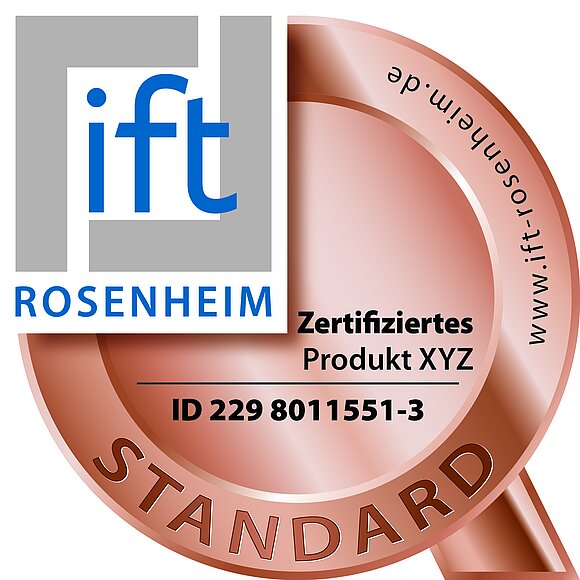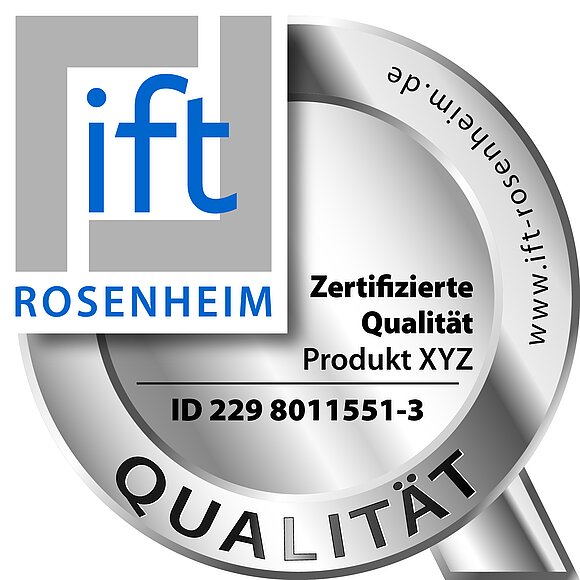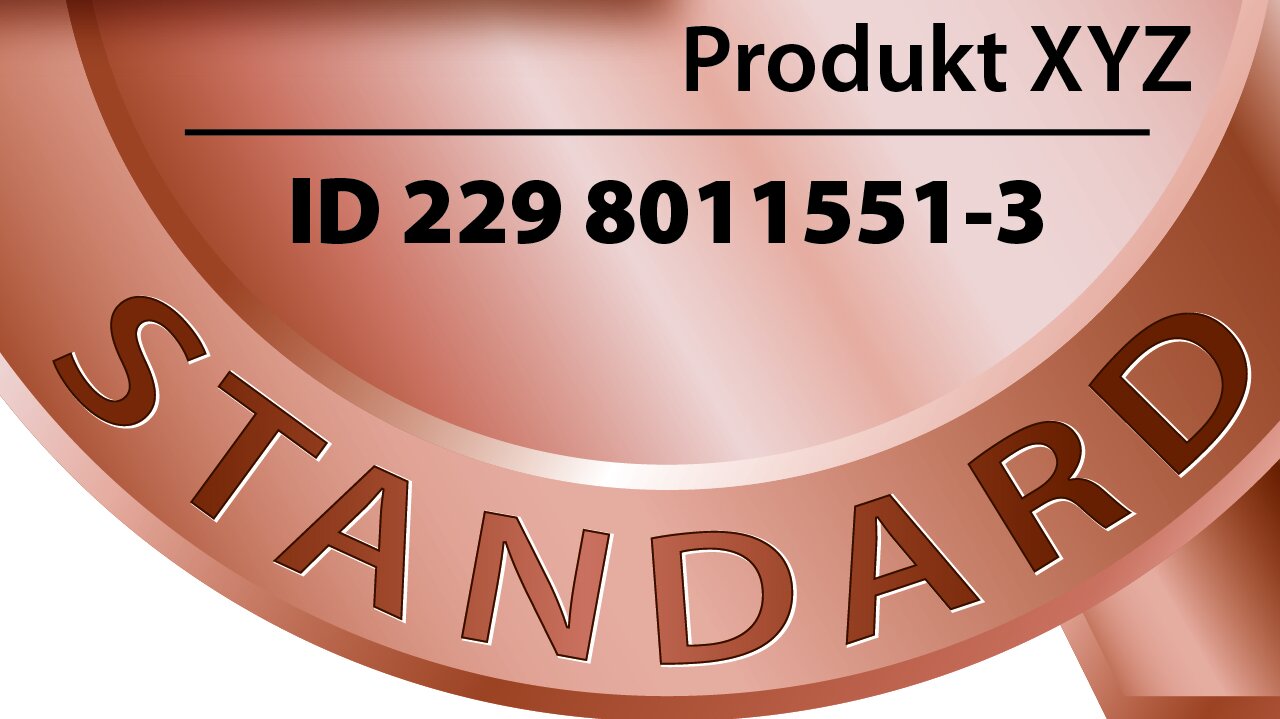Reading time: 1 minute
For many years, the ift Rosenheim has been offering a wide range of product certifications for materials, components and construction parts associated with windows, facades, doors, hardware and glass products.
The certifications are based on certification schemes designed for the respective products. The ift certification schemes are generally used to ensure the consistent quality of construction products and accessories.
An important shared characteristic of these schemes is that the product and manufacturer requirements are absolute, and all have to be complied with in order to obtain the "ift-certified" mark. This means that, up to now, there has not been any grading of requirements within the certification schemes.
This has sometimes put off primarily smaller manufacturers or companies with only little experience relating to factory production control, product testing, and hence consistent documentation or activities, or has failed to arouse their interest in product certification. In response the ift Rosenheim, in agreement with the Quality Assurance Association for Windows and Doors in Frankfurt, has developed a differentiated certification scheme (graded model) for windows, doors and facades.
The graded model
The graded model has two grades, ift "Standard" and ift "Quality". The content of the respective grades is cumulative and can be used as basis for achieving the RAL quality mark for windows, doors and facades. The respective grades are explained below and considered from the point of view of the manufacturer and taking into account potential support from the supply industry.
The ift "Standard" grade
This grade focuses on compliance with the standard requirements for products based on product standard EN 14351-1. This includes the necessary classification reports for building components, the correct declaration of performance and CE marking of components. In addition, the introduction, implementation and maintenance of factory production control plays an important role in this certification grade.
The manufacturer is given qualified support from appropriately qualified auditors of the ift Rosenheim, and can also use sample documents produced by the ift Rosenheim for such items as the structure and documentation of factory production control. The ift Rosenheim will also support the manufacturer in managing the progression from paper to product – i.e. in the implementation of the product standard requirements and the application of the classification reports through to the correct classification of the product actually produced. As part of this process, the manufacturer can of course utilise documentary evidence provided by system suppliers in the cascading TT, provided a cascading agreement is in place.
In this context, a possible basis is provided by the RAL system passports for PVC windows and doors based on RAL quality assurance in accordance with RAL-GZ 711 or the ift system passports based on the ift system supplier certification. These documents are important tools for manufacturers that can be used for declarations of performance and CE marking.
Compliance with the requirements under the QM 320 ift certification scheme is confirmed via annual third-party inspections by the ift auditors, and manufacturers can use the ift "Standard" certified mark to mark his products and/or for promotional purposes on documents and stationery. In addition, the manufacturer will be listed as a certified company on the ift Rosenheim website. By using a QR code, the client can access this site directly and obtain information about the manufacturer.

The ift "Quality" grade
This certification grade follows on from the ift "Standard" grade and includes requirements for products, constituents, components and the actual manufacturing process in order to ensure the necessary product quality. The main focus is on the suitability of the product system. This means that, for the purpose of the actual testing of e.g. a window system, a defined test programme has to be completed which goes beyond the requirements of the product standard. This may include a number of requirements – for example for the durability of a product – which means that a durability test of a building component must be a firm part of the test programme.
There may also be requirements for accessory parts, such as glazing or hardware/fittings, which go beyond those of the standard and contribute to the definition of the quality of the product. This may include certification of items such as the turn/tilt hardware used in accordance with the QM 328 ift certification scheme or a comparable system (e.g. RAL quality assurance to RAL GZ 607/3). Where no certification for the hardware is available, the window manufacturer has to take measures to ascertain the quality of the hardware as part of factory production control.
Obviously, the manufacturer is able to use the RAL system passports, ift system passports, ift product passports and documentary evidence from certified or quality-assured suppliers which have already been mentioned under the ift "Standard" grade. In this grade, the ift Rosenheim in its role as accredited and notified body confirms the exchange of components on the basis of the rules in the ift certification schemes, i.e. it is possible for the manufacturer, as part of certification, to substitute certified components without having to undergo repeated type testing. This leads to significantly improved product reliability for manufacturers and their customers/end users.

The manufacturing process largely determines the product quality and is therefore an important part of the mandatory annual audit of the manufacturer by the ift Rosenheim auditors. An additional requirement is the regular testing in a test rig of windows or doors by the manufacturer with respect to air permeability and watertightness. This is used to ascertain the ability of the manufacturer to produce a building component which in its totality complies with the requirements. Again, the supply industry can support the manufacturer in this respect, since this test can be carried out at a third-party test rig under the supervision of the ift Rosenheim. This means that the manufacturer is not forced to establish its own test facilities. The "Quality" ift-certified mark can be used in the same way as the "Standard" mark.
The RAL quality mark
In view of the fact that all requirements and provisions of the "Quality" grade have been devised to match those of the RAL quality regulations and test specifications for windows, doors, facades and conservatories of the RAL Quality Assurance Association for Windows and Doors e.V., the step to the RAL quality mark is only minor. In this context it should be mentioned that the window or door system of a system provider which has the benefit of a RAL system passport in accordance with RAL-GZ 716 is, in most cases, already compliant with all requirements regarding profiles and component tests. It goes without saying that the manufacturer has to be a member of the RAL Quality Assurance Association for Windows and Doors e.V.

Summary and outlook
The new graded model produced by the ift Rosenheim and the Quality Assurance Association for Windows and External Doors makes it possible for manufacturers to enter product certification via an easier route without having to face major requirements all at once. This means that this grade is primarily suited to small and medium-sized companies. Furthermore, this grade allows manufacturers to benefit from the know-how of the ift Rosenheim and to express this to their customers using the ift "Standard" mark, thereby developing their companies: the primary benefit for these companies is the promotional and sales-promoting effect of the ift and/or RAL mark, as well as the legal cover should documentary evidence and certificates be stipulated under construction law. This includes the necessary classification verification, the correct declaration of performance and the CE mark, as well as the organisation of factory production control in accordance with the standard.
This benefit is most likely to become evident when a company has to deal with claims, defects or an investigation by the market surveillance authority, because it can then point to a fully functioning system that complies with the standard and that has been audited and checked by the ift Rosenheim. Similarly, the listing as a certified company on the ift website gives confidence to architects, authorities and clients regarding the company’s ability to perform and to produce quality products.
In the ift "Quality" grade, the focus is on the quality of the product as well as on compliance with the standard requirements. This quality is assured through the defined system testing, the verification of durability, monitoring of the manufacturing process and the required regular testing of building components.
System providers and suppliers are able to provide support to manufacturers and pass on any existing documentary evidence (TT tests), test certificates and quality assurance documents. The content of these two grades is designed to ensure that manufacturers have the option to obtain, in an additional step, the RAL quality mark, which is particularly well known in Germany.


